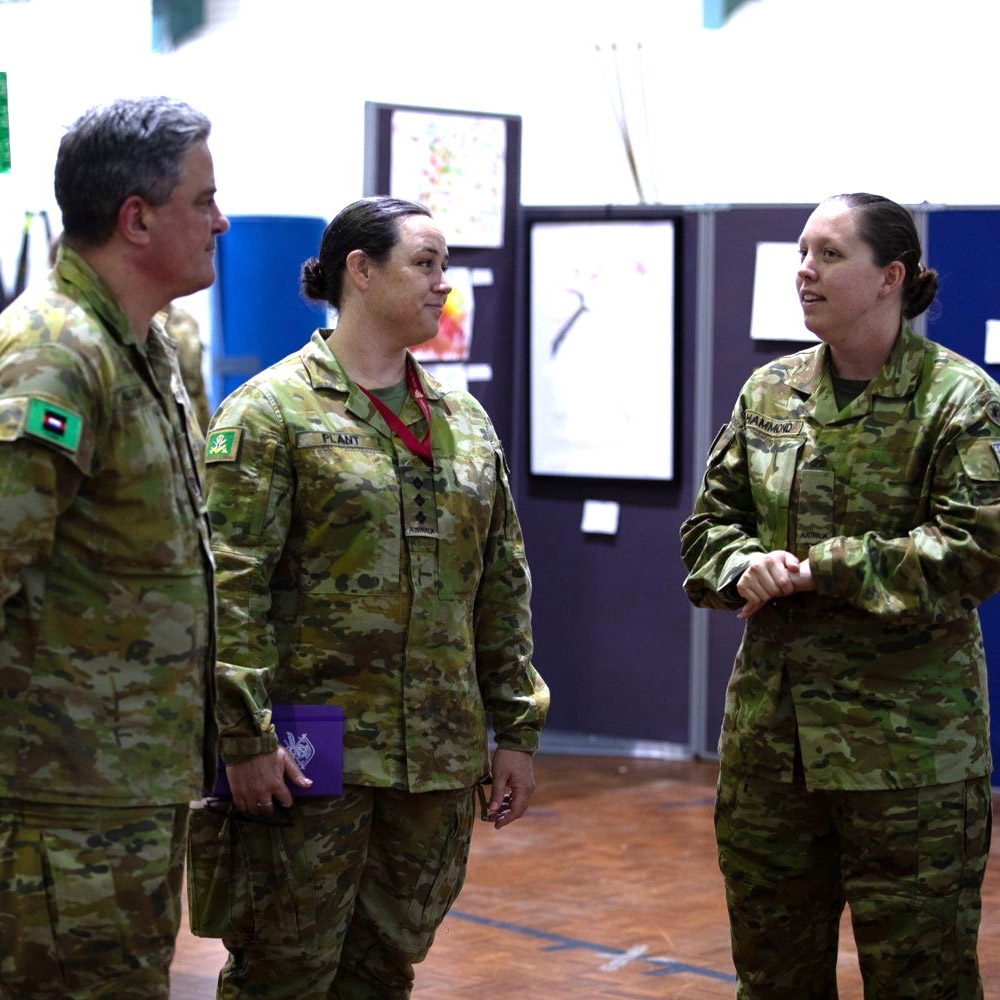06 September 2023

Army, navy and air force personnel based in Darwin are tapping into their creative side to help recover from challenging injuries sustained in service.
Injured ADF personnel from the 1st Brigade Region at Robertson Barracks are turning to poetry, drama, painting and sculpture as an alternative form of therapy.
The creative workshops are an extension of a self@arts program for injured military personnel that was successfully launched by the University of South Australia in 2019, initially focused on performance and poetry and now including the visual arts.
The revamped program has been designed and delivered in collaboration with Charles Darwin University (CDU) and Flinders University.
Self@arts founders, UniSA arts academic Dr Russell Fewster and sociologist Associate Professor Brad West developed the initial program when Australian military personnel were still actively deployed in Afghanistan and Iraq.
On Thursday 7 September, the ADF participants will perform poetry and plays at a workshop at Robertson Barracks, and will focus on painting and sculpture the following day. An exhibition of their visual art will be held for the defence community on Wednesday 20 September.
“The idea behind the workshops is to provide support to military personnel as they transition back into civilian life or return to active service following injury, including to new roles within the military,” Dr Fewster says.
The program incorporates creative writing, poetry, drama, dance, music, painting and sculpture – all pursuits that are right-brain focused and a world away from a battle zone.
Self@arts team member Dr Lisa Hodge, a senior lecturer in social work at CDU, says the feedback from participants has been very positive.
“The activities have increased their confidence, developed their communication skills, boosted their self-esteem, mental health, and improved their overall wellbeing,” Dr Hodge says.
Officer in Charge of the Soldier Recovery Centre in Darwin, Major Karmen Bourke, says having a creative outlet to express their emotions has allowed the soldiers to reflect on their own personal struggles with injury.
“Gaining the confidence to talk about an injury or traumatic experience can be quite challenging, but the new visual arts side of the program allows military personnel to express emotions visually when they can’t find the words,” Major Bourke says.
According to Assoc Prof West, the program has also forged closer ties between the military and the universities that have been involved in its development.
“This collaboration is significant, with the Defence Strategic Review highlighting the need for Australia’s southern regions to support its northern bases, Assoc Prof West says.
…………………………………………………………………………………………………………………………
Media contact: Candy Gibson M: 0434 605 142 E: candy.gibson@unisa.edu.au


